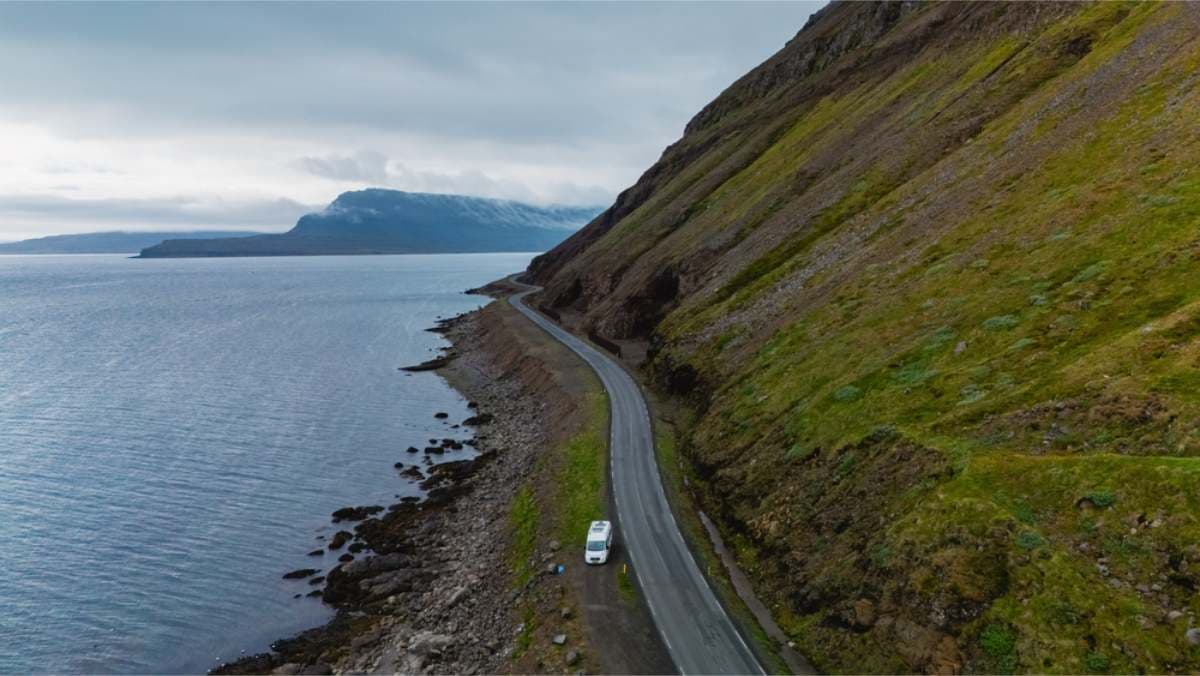
23 February
19 min read
Itinerary for 14 Days in Iceland: A Complete Campervan Route
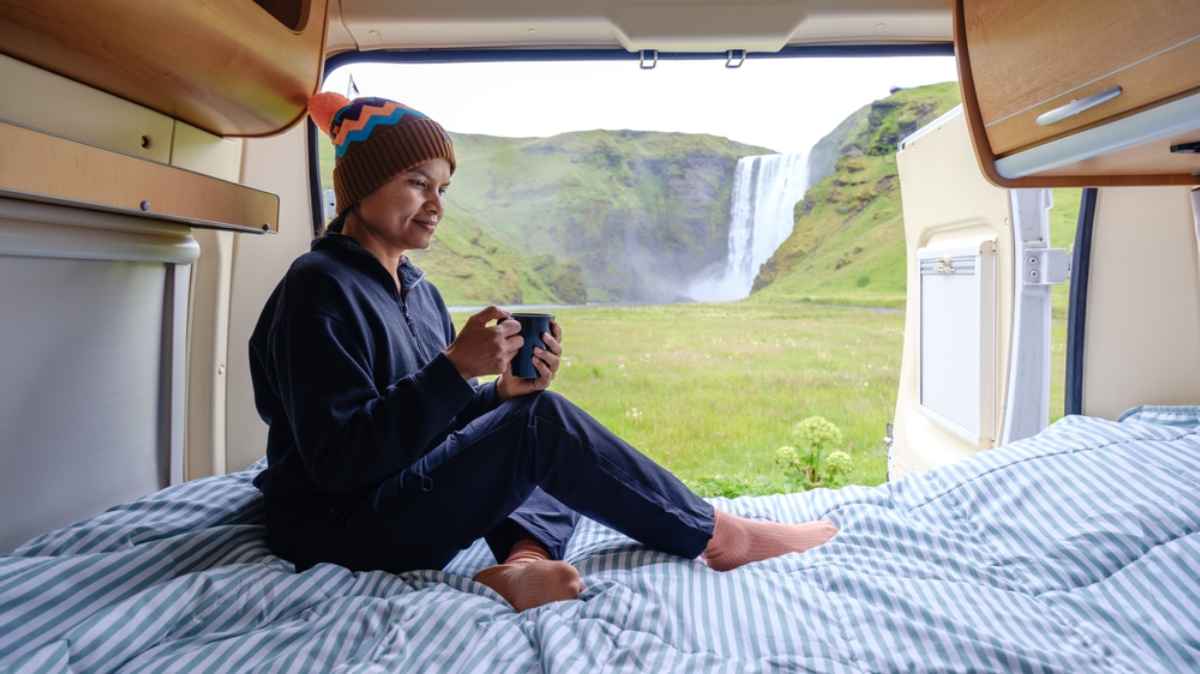
24 February 2023
9 min read
Accommodation will always be one of your biggest expenses on any holiday. But if you’re planning on taking road trips to explore the country, the decision regarding accommodation becomes even trickier.
Whilst some “road trippers” still opt for a rental car and hotels along the way, many now choose an RV/camper. But which is best? Who ultimately wins the title as the best accommodation option in the battle of RV vs. hotel?
In this article, we dive into the details regarding this subject. We'll see which of these will come out on top when taking your specific needs and requirements into account. So, read on to see which will form part of your next adventure.
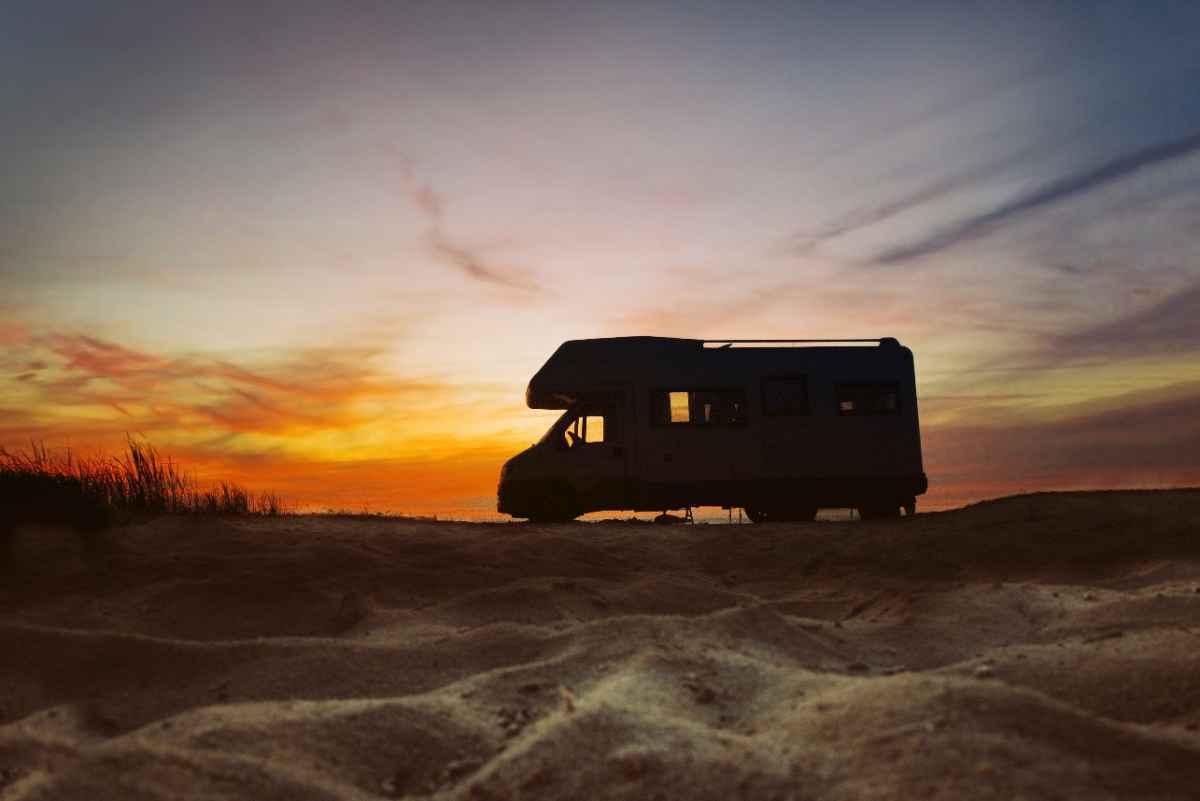
As we already touched on, both of these are valid options for your upcoming road trip. And both have their own set of pros and cons. There is not a one-size-fits-all solution when taking individual preferences and needs into account. That’s why you’ll need to dig a little deeper into all that these options have to offer in order to decide which will suit you best.
There are a few things you’ll need to take into consideration when choosing between an RV vs. a hotel. These are the following:
What is it that you like? Where do you prefer to stay? There’s not much point in choosing accommodation that is best in theory, yet you are absolutely miserable every second of the day. That completely defies the point of a breakaway, and you might as well just stay home then.
Most of us wouldn’t say no to a private luxury yacht on the French Riviera. But, unless you have the budget for it, you’ll need to be content on sailing only in your dreams. Your decision needs to be reasonable when looking at your finances. There’s no need to put yourself in debt and under pressure to get some much-needed rest and relaxation – this also defies the point.
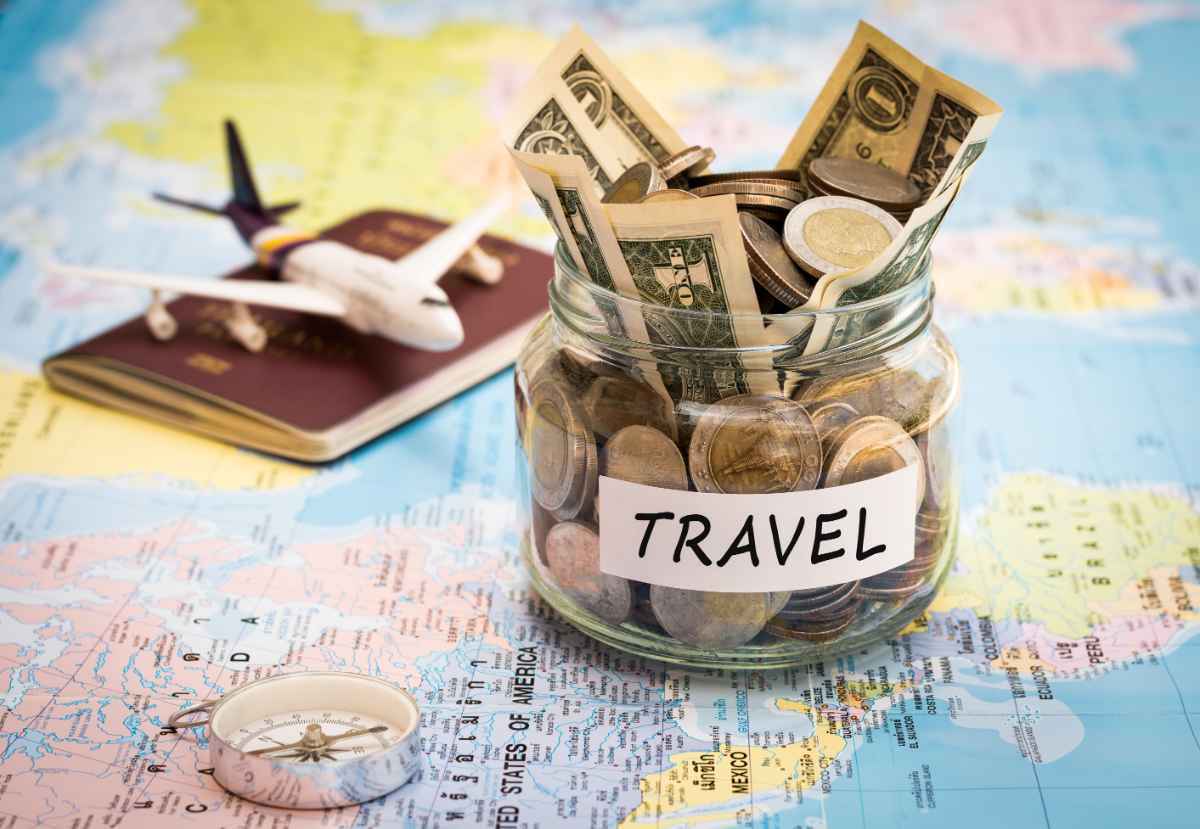
Everything in life has its pros and cons, and an RV vs. a hotel is no different. And by reviewing these pros and cons and matching them with your specific needs and requirements, you’ll ultimately find what will work best for you.
We’ve created this helpful overview below to help you make your decision:
An RV rental kills two birds with one stone. You have both your transport and accommodation sorted.
The above-mentioned often makes an RV cheaper than a hotel in the long run when taking all expenses into account. You definitely can’t beat an overnight stay at $20 vs the $300 you’ll be charged at a hotel.
It gives you flexibility. When you’ve booked a place in a hotel, you have to check in at a certain date and time. There’s no leeway for unforeseen circumstances that may cause you not to make it in time. Or simply linger at a spot you want to have more time at because you have to be somewhere else.
Despite its space limitations, an RV holiday is the most affordable way to have a family holiday – especially if you have a big family. Booking in two adults and three kids are the things nightmares are made of for any bank account.
You are guaranteed a unique experience and real adventure. Everyone can (and probably has) slept in a hotel at least once in their life. Not many can say the same when it comes to driving a camper. So, when an RV vs. hotel battles it out for the title of once-in-a-lifetime memories, the RV definitely takes it.

It doesn’t matter which way you look at it, an RV has limited space. Probably more than you realize. Unlike a hotel room where you can leave suitcases on the floor or things on tables, nightstands, etc. once the closet is full, you can’t do that in a moving RV. Unless you want to be hit by flying projectiles on your journey.
An RV can either have a bathroom or not, depending on your budget. An RV without a bathroom is basically camping in a tent made of harder material and can be quite a hassle.
But having a bathroom in an RV isn’t always what it’s cracked up to be either. You’re not dealing with central plumbing. You’re going to have to learn how to deal with sewer pipes, clean out the lines, etc. This is obviously not a very pleasant job – especially if you don’t get it right.
You need to cook for yourself in a camper. And since storage space is an issue (even in the fridge) and stocking up isn’t as simple as grabbing a few things at the shop around the corner, your menu choices might also become fairly limited.
Unless you’re used to it, parking with an RV can be tricky due to its size.
A hotel can be summed up in just one word; comfort, comfort, comfort! Unless you end up at the hotel from the Shining, you’re guaranteed to live in comfort.
Food is incredibly convenient when staying at a hotel. More often than not, your breakfast is included in your stay. And if you ever get hungry, you can either call for room service or walk down to the restaurant for a bite to eat.
There are plenty of added amenities and facilities, such as a pool and a gym. These are things that you won’t be getting with your RV (unless it’s an inflatable pool and a few weights).
A hotel has cleaning and maintenance services included, which means that you won’t need to be getting your hands dirty like you would in an RV.

You can only eat so much hotel food before it either gets boring or too expensive. And usually, you don’t have many self-catering options in your room except for a mini-bar and a microwave.
A hotel stay can become very expensive, very fast. You’re looking at hundreds of dollars just to be there in the first place. Want to take a chocolate from the mini-bar? Pay up! Want to order some food? Pay up! Want to have a drink at the bar? Pay up! All these amounts add up and generally, these amounts are already exceptionally blown up just because it’s served “in a hotel”.
Anyone who has ever seen Gordon Ramsay’s Hotel from Hell will look at hotels differently. You’re constantly wondering what’s really happening behind the scenes, and you’re both longing for and fearing a blue light across the bed.
If you’re planning on road-tripping with a rental car and then staying over at a different hotel every night, it can become quite a schlepp. No one wants to feel like they’re constantly packing up, packing in, and unpacking on a holiday.
If you’re still asking the question “is rving cheaper than hotels?” after reading our article, the short answer is “yes”. Whilst an RV might seem like twice the expenses with “accommodation”, transport, and gas, you’re not actually paying anything extra. An RV’s expenses look more or less like this:
Accommodation = $10-$20 per person per night (if you purchase a Camping Card, it’s even cheaper)
RV rental = $50 per day
Gas = roughly $13 a day (depending on how far you drive, of course)
A hotel’s expenses look like this:
Accommodation = $200+ per person per night (depending on which hotel you choose)
Car Rental (you’ll have to have your own transport anyway) = $55 per day
Gas = roughly $13 a day (depending on how far you drive, of course)
So, is renting an RV cheaper than a hotel? Unless you find the bargain of a lifetime, the answer is absolutely not.
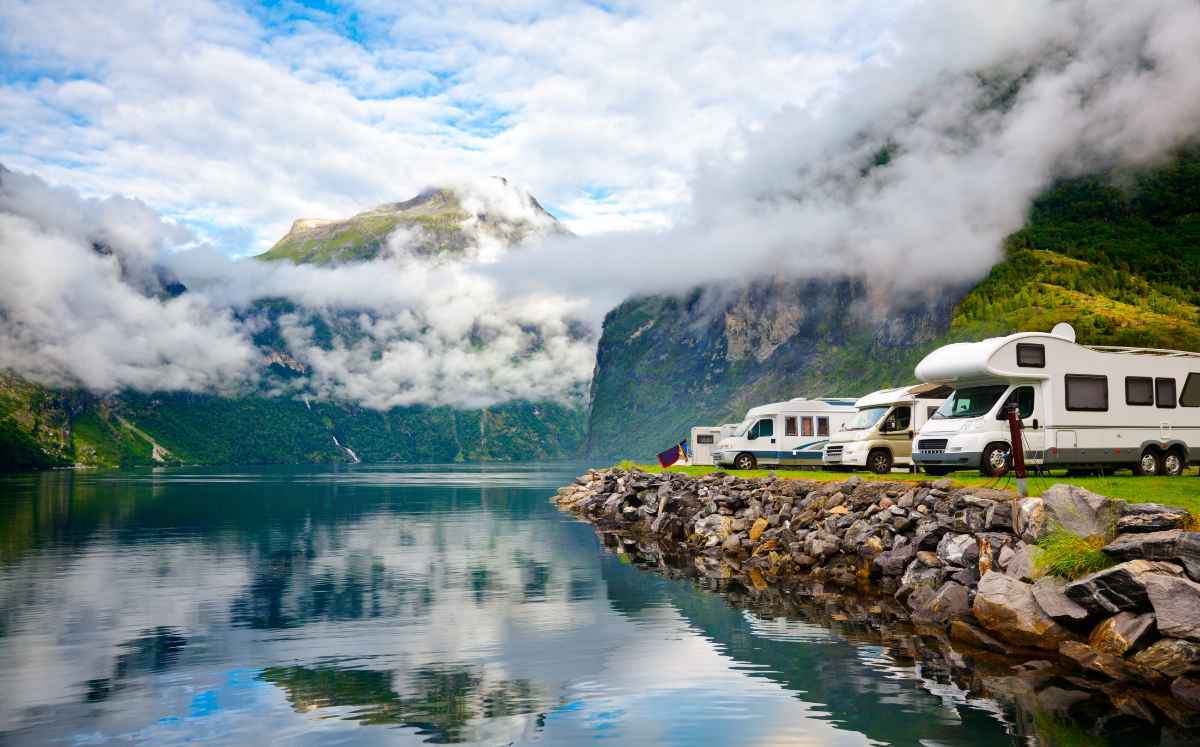
If deciding between a camper vs. a hotel was as simple as whether RVing is cheaper than hotels, the RV would win hands down most of the time. But, as you can see from all our pros and cons, the decision becomes much more complex. There are plenty of things to take into consideration before you can make an informed decision.
If you have made up your mind to go with the camper though, and it fits your Iceland budget, you can rent a campervan in Iceland shortly after landing at Keflavik Airport and start your Iceland road trip adventure.
More Iceland Stories to Explore
Discover more tips and tales to fuel your next saga
Join thousands who have booked with us
Iceland's most booked campervan of 2025 is waiting. Secure yours today!
Your rental comes with:
Handy Extras
Essential Insurance Plan
Unlimited Mileage
Flexible Cancellation